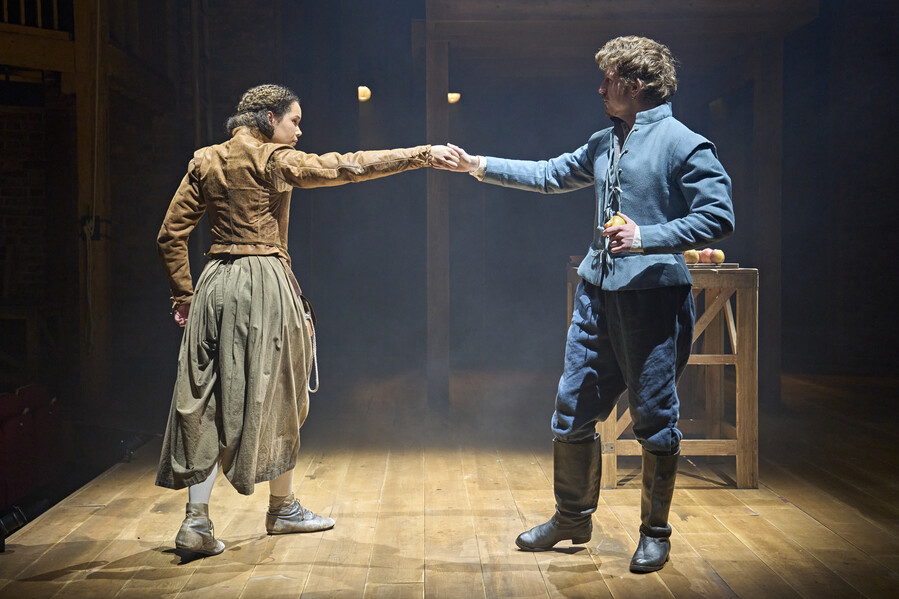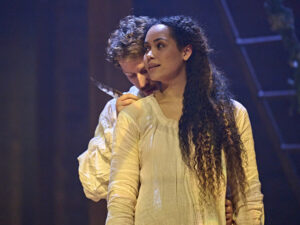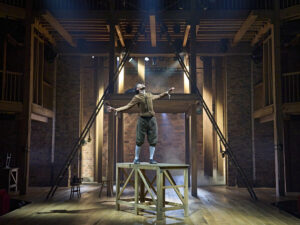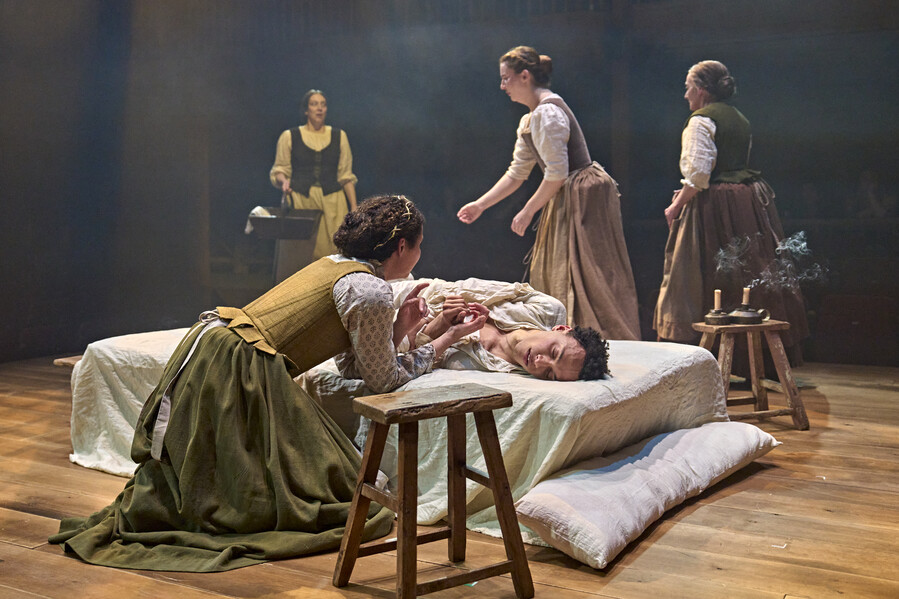
1 April – 17 June
Wonderful novels rarely make great theatre. Lolita Chakrabarti’s adaptation of Maggie O’Farrell’s bestseller for the Royal Shakespeare Company is skilful and engaging, but it cannot begin to equal the power of the original.
Hamnet, the novel, tells the story of the death of Shakespeare’s only son through the mind of his mother, Agnes Hathaway. Four years after his death, the father wrote ‘Hamlet’. In a note at the start of her book, O’Farrell states that the names ‘Hamnet’ and ‘Hamlet’ were interchangeable in the Stratford records of the late sixteenth and early seventeenth century. And these bare facts appear to have been her inspirational starting point.
O’Farrell’s great strength as a writer lies in her ability to create strange and unforgettable characters, drawing the reader into their inner worlds. Her prose is compulsive and luminous. I know of no other popular novelist who can so successfully convey the ravages of maternal love and grief. None of these qualities translate easily to the stage.
That said, the play is never dull, and the production, directed by Erica Whyman, has much to commend it, in particular the way it hints at a place beyond this earthly life. The belief in second sight was common in Shakespeare’s time and there are many examples of supernatural intervention in his work. Agnes Hathaway is portrayed as a gifted outsider who sees beyond the confines of mortality. There are powerful moments as when she hears the voice of her dead mother, or when she sees visions of what is to come. Sound and light are used to good effect, the choice of both European and African instruments hinting at overlapping worlds, a theme developed by casting actors of mixed race for the Hathaways, a family of outsiders in the Stratford community.

Madeleine Mantock as Agnes has both warmth and versatility, conveying strength coupled with gentleness. She stands out, but she is not alone. There are compelling performances from all the company. The design is economical, using the wooden framework of the Swan Theatre itself to conjure the Stratford homes and the stage of the Globe at the end.
Here, for the first time we see William, not as husband and father, but as actor and playwright, walking the ramparts as the ghost of Hamlet’s father. The revelation should be pivotal. But Tom Varey’s portrayal of the great dramatist, while energetic and watchable, tends towards the histrionic, missing any hint of the genius that lurks within.
Indeed, in all the theatre scenes the company seems to stray into the comedic territory of ‘Upstart Crow’, with Kemp and Burbage as self-important thespians who will do anything to remain centre stage. This only emphasises a prevailing sense that the adaptation is not sure where its focus lies.
Drama needs conflict, and the conflict here is mostly domestic and social. But Hamnet should be more than just a family saga. The heart of the novel lies in the conflict between Life and Death. We get a glimpse of this towards the end when the young actor playing Hamlet (Ajani Cabey), who also plays Hamnet, stuns the onstage and offstage audience with one of the great soliloquies. Agnes is overwhelmed by what her husband has achieved. At last, the soaring imagery matches the demands of its theme.
★★★☆☆ Ros Carne 14 April 2023

Photo credit: Manuel Harlan


